Lisbon, ISCTE & ULisboa
The First Chapter of Your MAGMa Journey
Your MAGMa journey begins in Lisbon, a city where history seamlessly blends with modern creativity, providing an exceptional environment to immerse yourself in the world of art and cultural heritage. Known for its rich historical significance and vibrant contemporary scene, Lisbon offers a unique backdrop for exploring the complexities of the global art market and cultural industries. From iconic museums to a thriving cultural entrepreneurship landscape, Portugal's capital is a living classroom for students looking to understand the dynamic forces that shape culture today.
At ISCTE, you will begin with core courses that lay a solid foundation for your academic and professional development. With courses such as Art Markets: Structure and Dynamics, Cultural Entrepreneurship, and Management Foundations, you will gain the critical skills and insights needed to understand the economic and strategic forces driving the global cultural sector. These courses will guide you through the intricate relationships between culture, commerce, and management, setting the stage for the next phases of your MAGMa experience.
Simultaneously, you'll attend Art History courses delivered by the University of Lisbon, at FLUL (Faculdade de Letras, Universidade de Lisboa), situated within the esteemed School of Arts and Humanities. FLUL is renowned for its academic excellence across disciplines such as Literature, Philosophy, History, Art History, Archaeology, and Linguistics. Here, you'll have with the added opportunity to learn Portuguese as a Foreign Language, as FLUL is a certified testing centre.
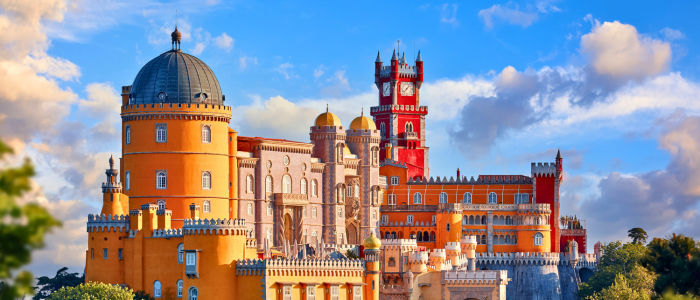
About Lisbon
- Lisbon was ranked the #1 city for expats worldwide in terms of quality of life, ease of settling in, and personal finances (InterNations, 2022).
- In 2024, was named the 7th safest country in the world (Global Peace Index, 2024).
- Lisbon is among Europe’s top 5 emerging tech hubs, attracting investment in innovation and digital industries (Startup Genome, 2023).
- In 2020, Lisbon was ranked the Green Capital of Europe for its commitment to sustainable urban living and climate action (European Commission, 2020).
- Lisbon hosts over 250 festivals and cultural events annually, celebrating music, art, cinema, and global heritage (Visit Lisboa, 2023).
- Portugal was ranked #1 in Europe for LGBTQ+ travel safety (Equaldex, 2024).
- Lisbon’s public transport system is among the most affordable in Europe, with student discounts widely available (Numbeo, 2024).
- Lisbon has one of Europe’s highest levels of English proficiency, making it an accessible city for international students (EF EPI, 2023).
- With its mild climate, Atlantic coastline, and vibrant café culture, Lisbon is regularly listed as one of the best cities in Europe to live and study (Time Out, 2023).
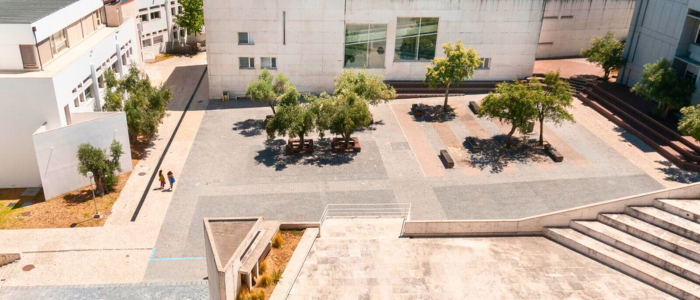
About ISCTE University Institute of Lisbon
Founded in 1972, ISCTE University Institute of Lisbon (ISCTE) is one of Portugal’s leading universities with a strong commitment to research, innovation, and global engagement. The University boasts a diverse international student body and offers a dynamic academic environment with a focus on developing the skills necessary for success in our modern, interconnected world.
- Modern Facilities & Study Areas: ISCTE’s campus is equipped with state-of-the-art lecture halls and research spaces, as well as modern study spaces, including group study rooms and individual workstations. Wi-Fi is available throughout the campus.
- Cafeterias & Dining: A variety of dining options are available, from casual cafeterias to bars offering meals at affordable student rates.
- Library: The campus library, located in Edifício II, is well-stocked and offers a quiet space for focused study.
- Student Card: In your first week, you will recieve a student card from the International Relations Office staff. This card is essential for building access, attendance recording, library services, and local discounts.
- Fenix+: ISCTE’s online platform for student enrollment and academic management.
- Moodle: The online platform where you will access course materials, announcements, and other academic resources.
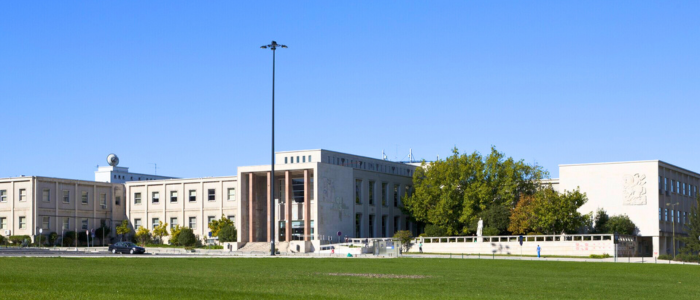
About University of Lisbon
The University of Lisbon (ULisboa) is Portugal’s largest university, comprising 18 schools across 9 campuses. It offers a diverse academic environment with over 50,000 students, including more than 7,500 international students. ULisboa is committed to providing a comprehensive student experience, blending academic rigor with cultural and social engagement.
- Study Spaces: ULisboa provides a variety of study environments across its campuses, including individual study rooms and group work areas, all equipped with Wi-Fi access.
- Libraries: Each campus hosts well-equipped libraries offering a range of resources and quiet spaces for study. MAGMa students, in particular, benefit from unlimited access to FLUL’s extensive library collections, which include specialist art, humanities, and cultural heritage resources – perfect for research, coursework, and independent study.
- Cafeterias & Dining: Students can enjoy affordable meals at a range of dining halls and campus cafeterias.
- Sports & Recreation: The Lisbon University Stadium (Estádio Universitário de Lisboa) is part of ULisboa, offering extensive sports facilities, including football fields, tennis courts, a golf course, and a swimming pool complex.
- Student Card: The University of Lisbon issues a mandatory student identification card, providing access to university services and facilities. Students can apply online or in person at designated locations.
- Student Support: ULisboa offers comprehensive support to ensure students’ well-being and academic success, including social support, counseling, and assistance with academic matters.
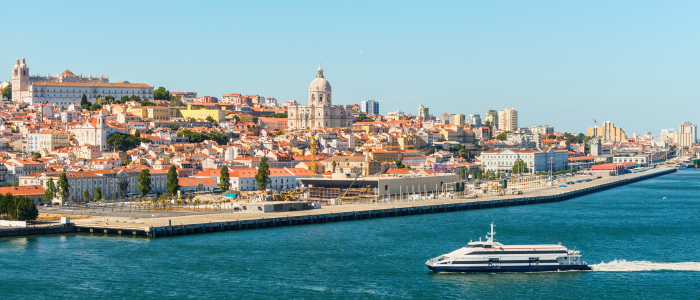
Visa Requirements
- Students who are citizens of EU countries do not require a visa to study in Portugal.
- Students from outside the European Union (EU) and European Economic Area (EEA) must obtain a Study Visa before entering Portugal.
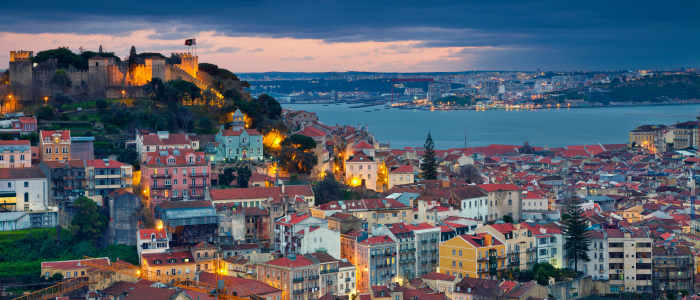
Cost of Living
When planning your budget for Semester 1, it’s essential to consider the various costs you may encounter during your studies. These include:
- Living expenses: This includes accommodation, food, travel, books, clothing, and entertainment. Your daily expenses will depend on factors like where you live and your lifestyle choices.
- Bills: Regular utility costs such as electricity, gas, WiFi, mobile phone bills, and streaming services should be factored in as part of your monthly budget.
- Emergencies: Unexpected expenses can arise, such as medical costs or unforeseen travel. It’s important to have a financial buffer for these situations.
Lisbon offers a relatively affordable lifestyle compared to other European capitals. A comprehensive breakdown of monthly expenses is available from the University of Lisbon below to help plan your finances.
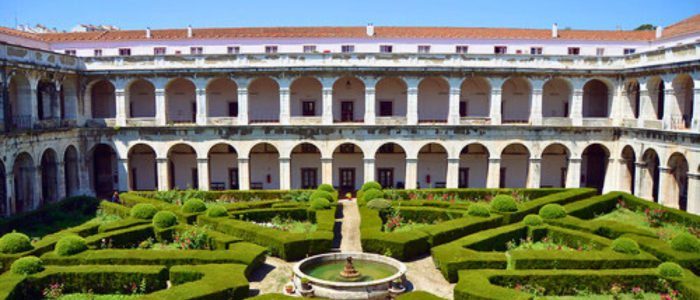
University Accommodation
The majority of ISCTE's student community resides in private accommodation throughout Lisbon. However, the university also offers housing at the Professor José Pinto Peixoto University Residence, which accommodates a select number of visiting students and faculty members.
Located in Lisbon’s East End along the Tagus River, the residence is housed within the 17th-century Monastery of Santos-o-Novo, a nationally listed monument of historical significance. The residence provides both private and shared accommodation at competitive rates, and includes modern amenities such as high-speed internet, communal study rooms, and leisure facilities.
The following accommodation options are available at the Professor José Pinto Peixoto University Residence:
- Double room with private bathroom and kitchen (3 rooms) – €385 per month
- Double room with private bathroom (2 rooms) – €330 per month
- Triple room with private bathroom (20 rooms) – €275 per month
- Quadruple room with private bathroom (4 rooms) – €240 per month
- Double room with shared bathroom (8 rooms) – €221.60 per month

Private Accommodation
The majority of international students in Lisbon find accommodation through the private rental market. You can explore a variety of options on the following websites:

Learning Portuguese
While many in Lisbon speak English, proficiency in Portuguese will enrich your experience both academically and socially.
-
ISCTE: Offers courses for all levels through the Soft Skills Lab. Beginners can start from scratch, while experienced learners take a placement test. To register, email the International Relations Office at lct@iscte-iul.pt before arrival.
- University of Lisbon: FLUL also offers students the added opportunity to study Portuguese as a Foreign Language and is a certified testing centre, offering formal accreditation.

Public Transport
Lisbon has an efficient and affordable public transport system, making it easy to get around the city.
- Metro: The Metro Lisboa system is the quickest and most convenient way to travel around the city. The nearest station to ISCTE is Entrecampos on the Yellow Line.
- Buses and Trams: Bus, tram, and funiculars networks connect all parts of Lisbon, and are run by the local transport company, Carris.

Student Support
ISCTE and ULisboa are dedicated to ensuring the success and well-being of their students, offering a range of support services to help you thrive during your studies.
- ISCTE: The Social Action Service provides comprehensive support, including free counseling services, personal development resources, and academic guidance. Email them at sas.gaa@iscte-iul.pt. ISCTE also offers dedicated services for students with special educational needs, facilitating their integration into academic life. Email them at sas.nee@iscte-iul.pt.
- ULisboa: ULisboa provides comprehensive student support through its Psychological Support and Social Action Services, including free counseling, well-being resources, and guidance for academic and personal development. Email the Psychological Support team at psicologia@ulisboa.pt. ULisboa also offers dedicated services for students with special educational needs, helping them fully engage with academic life. Email the Special Educational Needs team at enee.apoio@ulisboa.pt.

Healthcare & Emergencies
- Health risks in Portugal are minimal, with the country maintaining high standards of public health and hygiene. Tap water is safe to drink, and dining establishments adhere to rigorous health and safety regulations.
- As with any international travel, it is advisable to carry a copy of your health insurance certificate or European Health Insurance Card (EHIC) to ensure access to necessary healthcare services during your stay.
- Portugal offers public healthcare to residents, including international students who are registered in the country. Be sure to register with your local health centre upon arrival. Private healthcare is also available, and students can purchase health insurance for additional coverage.
- ISCTE's SAMS Clinic in the corner of the Central Yard offers a variety of clinical appointments and tests.
- The closest hospitals to ISCTE are Hospital de Santa Maria (accessible via Metro to Cidade Universitária) and Alvalade Health Centre (accessible via Metro to Alvalade or buses 21, 735 and 755).
- For medical emergencies, and police and fire departments, call 112.

